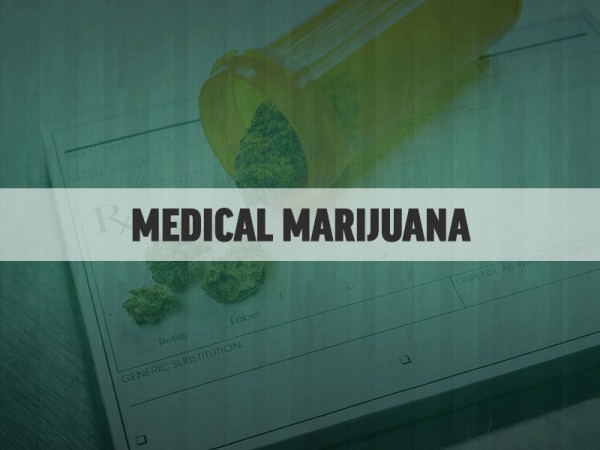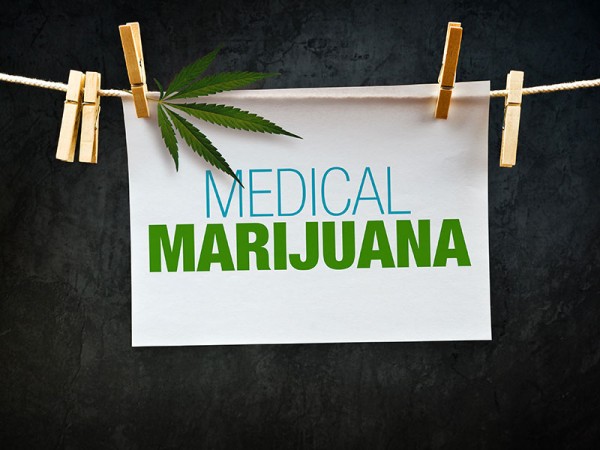ATLANTA (AP) A state Senate committee, after hearing pleas from parents seeking to treat their sick children with low-potency medical marijuana oil, approved a limited version of a bill Wednesday to allow in-state production and sales of the drug for Georgia patients.
The Senate Regulated Industries Committee approved the Republican-sponsored measure on a vote of 7-2 with several changes. But the author of the bill, Republican Rep. Micah Gravley of Douglasville, said there were ``many, many problems'' with the updated measure. He didn't immediately elaborate on what they were.
The revised bill significantly lowers the number of available grow licenses and retail dispensaries but would still allow patients who already can legally possess low-potency marijuana oil access to the product.
It closes a loophole created by the state's 2015 medical marijuana law that allowed patients to possess the drug but provided them no real way to obtain it. It is currently illegal to grow, process, buy or sell low-potency medical marijuana oil in Georgia.
The bill should now head to the full Senate. Less than a week remains before the session ends Tuesday, the deadline for it securing Senate and House passage.
Current state law allows individuals with 16 specific conditions, including cancer, seizure disorders and Parkinson's disease, to possess the drug.
The updated proposal would create a state commission that allows Georgia to obtain medical marijuana from other states. ``That will be the fastest way for sure to get products our citizens need,'' said Sen. Bill Cowsert of Athens, Chairman of the Senate Regulated Industries and Utilities committee.
The bill would still allow for private producers to be involved but on a much lower scale than what was initially proposed, Cowsert said.
It would only grant growers licenses to two private companies one relatively big and one relatively small. But it would also grant permission for two universities to start a research and manufacturing program for the drug.
The revised measure still would allow for up to 10 retail locations, where only those already registered with the state as having a Low THC Oil Registry Card can enter and buy products. It would also allow licensed pharmacies to distribute the drug.
Thirty-three states already have comprehensive medical marijuana programs, according to the National Conference of State Legislatures. Georgia is one of 13 other states that allow patients to possess a lower potency form of the drug.
Wednesday's vote in Georgia came after hours of emotional testimony spread across two different days.
Shannon Cloud came to the Capitol with her 13-year-old daughter, who her mother said suffers from seizures as a result of Dravet syndrome, a rare lifelong form of epilepsy, and has the developmental age of a 4-year-old.
``Every morning, when my daughter wakes up, I wait to see when I go into her room: is she going to be breathing or am I going to find her face down in her pillow?'' Cloud said through tears, while testifying for the bill. ``If that one seizure can be prevented and that's the one that can take her life, then that's why we need access to this medicine.''
Three sheriffs representing the Georgia Sheriff's Association testified against the bill last week and told lawmakers they worried that legalizing medical marijuana would be ``the last step, right before we legalize marijuana in Georgia for recreational use.'' They urged lawmakers to limit the number of licenses issued.
But on Wednesday, after hearing about some of the new changes to the bill, executive director of the Georgia Sheriffs' Association, J. Terry Norris, said he may recommend that sheriffs no longer oppose the bill.
The Georgia proposal will give patients access to a safe, regulated product, said Gravley, the bill's main supporter.
He stressed that the measure ``is not tied to legalizing recreational use for kids and adults.''
Cowsert raised an ``overriding concern'' that possessing any amount of this drug, which is not FDA-approved, still violates federal law.
Gravley did not dispute Cowsert's claim but said he hoped his bill would send a message to Georgians that ``your state is going to give you immunity to treat your loved one with something you know works when all the other prescriptions have not worked.''
Corey Lowe says her teenage daughter's seizures dropped from about 100 times a day to once a day after she began using low-potency medical marijuana oil in 2014.
Lowe, a former police officer, said she resigned in 2013 to focus on fighting for medical marijuana access in Georgia.
``I would risk being a convicted felon to save my child,'' Lowe previously said. ``I used to arrest people and now I'm worried about being a convicted felon.''
Saturday
August 30th, 2025
5:21AM

















